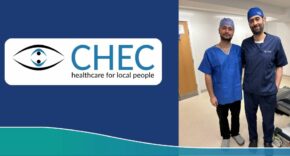
The use of technology in nursing is becoming more and more important as the healthcare industry changes. Technological innovations including wearable health gadgets, electronic health records (EHR), and telemedicine are changing the way nurses provide patient care. This new era demands a workforce that is not only skilled in traditional nursing practices but also adept at utilizing innovative technologies.
Koru UX Design mentions that personalization in healthcare is gaining momentum, largely due to technology-driven innovations. The medical devices market, valued at $442.5 billion in 2020, continues to thrive despite temporary setbacks from supply chain disruptions. The healthtech market itself generated an annual value of about $410 billion in 2023, showcasing the demand for advanced healthcare solutions.
Adopting these changes will enable nurses to improve patient outcomes, streamline workflows, and enhance communication within healthcare teams. In this article, we will explore the importance of technology in nursing and highlight key areas that can help prepare future nurses for success.
Enhancing Patient Care with Innovative Tools
The integration of technology in nursing enhances patient care in various ways. Telehealth services have revolutionized the way nurses interact with patients, providing access to care regardless of geographical barriers. Through virtual consultations, nurses can assess patient conditions, manage chronic illnesses, and provide education from the comfort of their homes.
Electronic health records (EHR) also make it easier to maintain patient data, giving nurses rapid access to the most recent information. This effectiveness guarantees that patients receive care on time, lowers mistakes, and enhances coordination among healthcare professionals.
Statista reports that electronic health records are set to significantly enhance the market value of smart hospitals. In 2021, the global smart hospital market was valued at about $36 billion, with $7.6 billion attributed to EHR alone. Future projections indicate that this market could grow to nearly $18 billion by 2026, highlighting the increasing importance of EHR in modern healthcare settings.
Moreover, wearable devices enable real-time health monitoring, empowering nurses to detect potential issues early and intervene effectively. By leveraging these innovative tools, nurses can deliver more personalized, efficient, and proactive care.
The Future of Nursing Education
The educational landscape is also changing significantly as technology continues to influence nursing practice. Virtual classrooms have emerged as a convenient and effective way to prepare future nurses for the evolving healthcare environment. Students can combine their studies with job and personal responsibilities thanks to the flexibility offered by online education programs.
Forbes notes that in fall 2022, over 10 million college students enrolled in at least one distance education course. Nearly 50% of these students completed all their coursework online, with most being undergraduates. A majority of these online learners, around 7.4 million, attended four-year public institutions, reflecting the growing popularity of online education.
According to Spring Arbor University, these programs often incorporate interactive elements such as simulations and virtual labs, providing hands-on experiences in a digital format. As more universities adopt virtual learning, students can access innovative educational resources that better prepare them for the technology-driven landscape of healthcare. Through global connections with classmates and teachers, online learning platforms promote cooperation and a diversity of viewpoints.
The shift to online education has become especially valuable for students looking to advance their careers. As more universities adopt innovative online programs, aspiring nurses can pursue their education without sacrificing their current jobs or personal lives. This flexibility allows them to gain crucial clinical skills while adapting to the realities of a technology-driven healthcare environment.
When it comes to finding the ideal school for online nursing education, students have a wealth of resources at their disposal. Webinars provide opportunities for students to connect with experienced professionals, guiding them toward the most reputable schools to become a nurse practitioner. This approach ensures that students can make informed decisions about their education, aligning their career aspirations with the right programs.
Building a Tech-Savvy Nursing Workforce
To thrive in this new era of care, it is essential to cultivate a tech-savvy nursing workforce. This involves not only integrating technology into daily practices but also ensuring ongoing education and training for nurses at all levels. Healthcare organizations should prioritize professional development programs that focus on emerging technologies and their applications in nursing.
Collette Health highlights that post-pandemic, technology has become even more essential in healthcare as clinicians adapt to working with fewer resources. Tech-savvy nurses had become the norm in 2023, using smart technology and big data to monitor vitals, manage electronic health records, and automate tasks. This shift allows nurses to deliver more personalized and efficient care to their patients.
Employers can empower nurses to enhance their skills and confidence in using new tools by offering workshops, seminars, and hands-on training. Additionally, fostering a culture of continuous learning encourages nurses to stay updated on industry trends and advancements. With this, the nursing profession will be better equipped to adapt to technological changes, ultimately leading to improved patient care and outcomes.
FAQs
How can virtual consultations benefit rural healthcare?
Virtual consultations help bridge the gap for patients in rural or remote areas, providing access to medical care without needing to travel long distances. This ensures timely treatment for chronic conditions and regular check-ups, which can significantly improve health outcomes for underserved communities.
What tools can help track nursing students’ progress?
Interactive online platforms and virtual labs now offer data-driven insights into nursing students’ performance. Instructors can monitor progress in real-time, offering personalized feedback. These tools also allow students to self-assess their skills, encouraging continuous improvement and engagement throughout their education journey.
How can healthcare employers foster continuous learning?
Healthcare employers can implement ongoing development programs like workshops and hands-on training in the latest nursing technologies. Creating a culture of continuous learning encourages nurses to stay updated on trends. It also enhances their adaptability, ensuring they can quickly integrate new tools and techniques into patient care.
Integrating technology into nursing is key to improving patient care, efficiency, and workflows. With innovations like telehealth, electronic health records, and wearable devices, nurses need the skills to effectively use these tools. Nursing education is shifting towards virtual learning and hands-on tech training to meet these demands.
Healthcare providers can deliver more personalized and accessible care by building a tech-savvy workforce, enhancing both patient outcomes and the overall healthcare experience. This focus on technology in nursing is shaping the future of healthcare, ensuring it’s more efficient and patient-centered.












